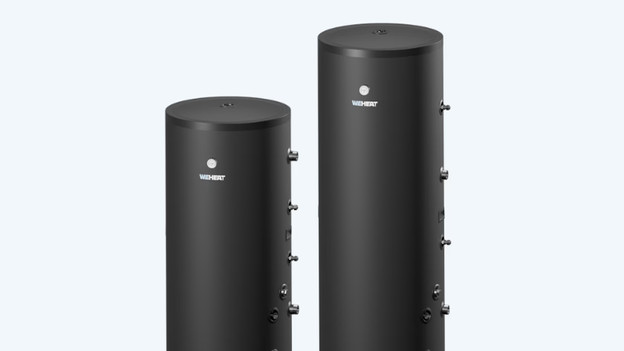What's the difference between a buffer tank and boiler?
Introduction
If you make your house more sustainable, you'll probably see the terms 'buffer tank' and 'boiler'. Both store water, but they have different functions and benefits. In this article, we'll explain the difference between a buffer tank and a boiler.

What's a buffer tank?
A buffer tank is a large water tank you can store warm water in. You can use this water for your heating system, such as radiators or floor heating. You can't shower or cook with this water.

What's a boiler?
A boiler is a tank you can store warm tap water in. You can use this water to shower, cook, or clean. With a boiler, you always have hot water right away, without having to wait until the water heats.
Pros and cons buffer tank
- You can store heat for later use, so you save energy.
- Your heat pump or central heating boiler helps less often, so you reduce wear.
- You can store heat from solar panels, for example.
- A buffer tank takes up more space than a boiler.
- The costs for purchase, installation, and maintenance are higher.
Pros and cons boiler
- You have access to warm water right away, even during peak moments.
- The water stays at a constant temperature, so you don't have to wait long for warm water.
- The installation is easier and more affordable than with a buffer tank.
- To keep the water temperature high, you use more energy.
- The boiler empties faster if you use a lot of warm water, for example when you shower for a long time.

What suits you?
Whether you need a buffer tank or boiler depends on your situation and wishes. Do you use multiple heat sources and do you want to save quickly? A buffer tank is the best choice. Do you want tap water right away without waiting? Choose a boiler. At Coolblue Energy, we're happy to help you make the right choice. Ask a free advice conversation and discover which solution suits you.
